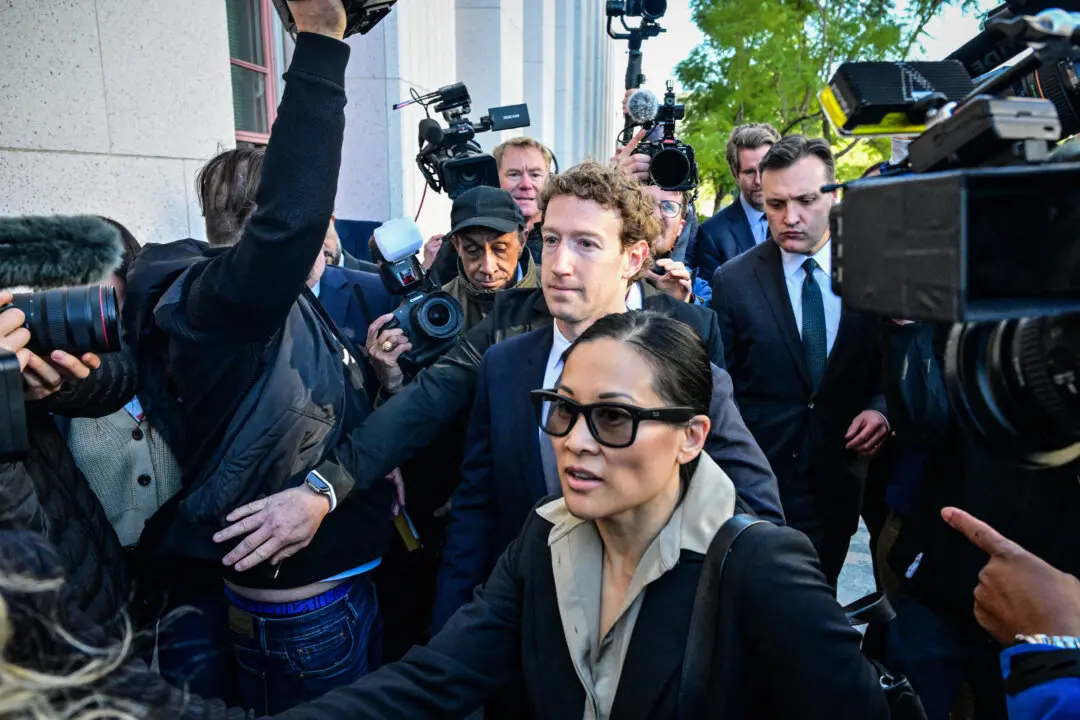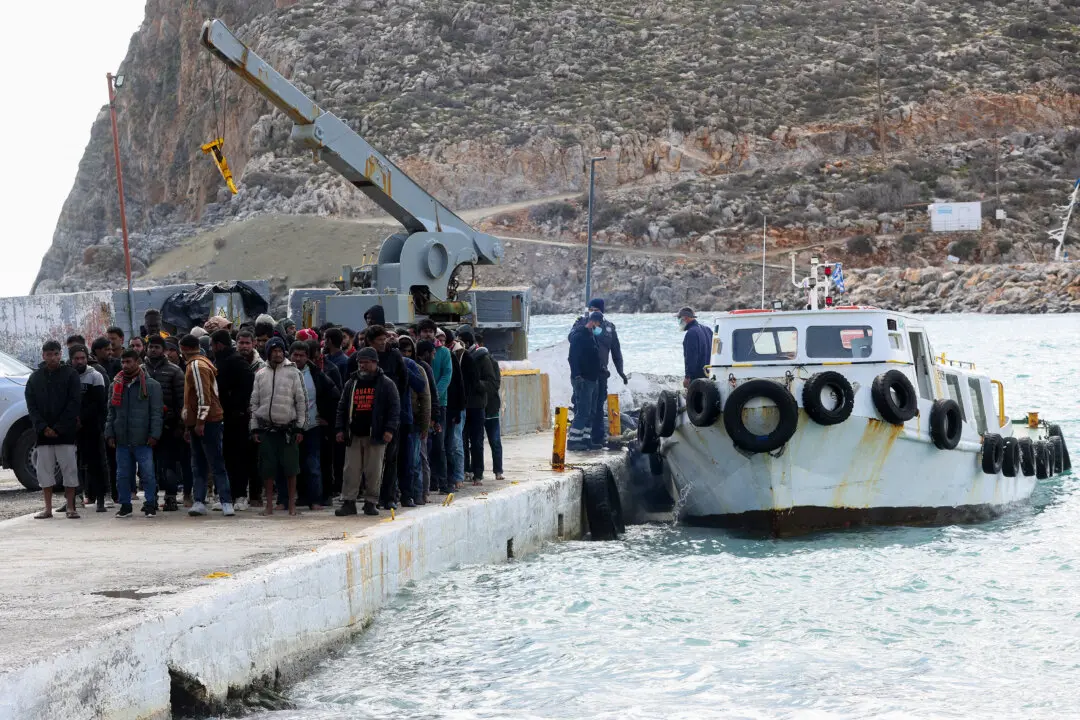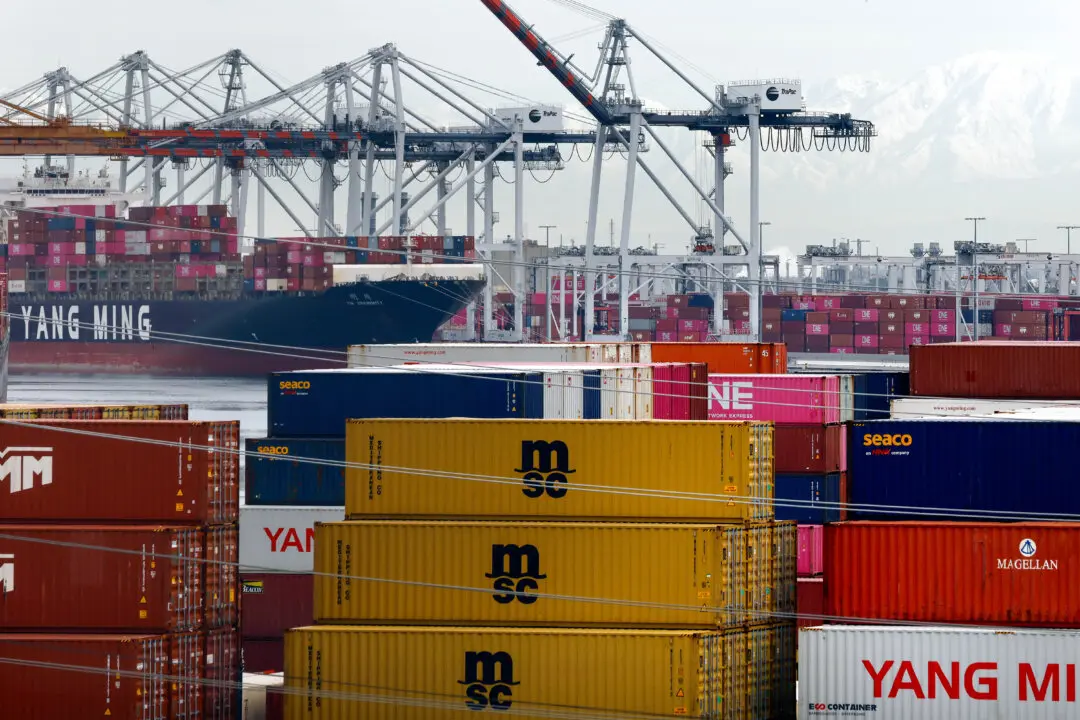Former Party Chief of the Chinese Communist Party (CCP) Hua Guofeng died on August 20, 2008 in Beijing. The CCP is considering honoring him with a state funeral. Hua reportedly had asked to quit the CCP and more than once requested that his family name be restored to that of his father Mao Zedong. The CCP, however, rejected Hua’s requests and kept his family background secret his entire life to safeguard the image of Mao Zedong and the CCP.
Radio Free Asia reported that the CCP is considering honoring China’s former top leader with a state funeral, and his body will be cremated in Beijing. Hua’s children abroad will arrive in Beijing soon to attend their father’s wake.
Hua Was Mao’s Eldest Son Born Out of Wedlock
According to CCP official documents, on his death bed in 1976 Mao Zedong designated China’s then-premier Hua Guofeng as his successor, and wrote to Hua “With you in charge, I am at ease.”
Hong Kong magazine The Trend reported in its March 2003 issue that on the eve of the CCP’s Sixteenth Congress in 2002, Hua wrote to the Politburo asking that his last name be restored to that of his biological father Mao Zedong. The CCP’s Organizational Department rejected his request on the grounds that it would damage Mao Zedong’s reputation and cast a negative shadow on the Party, society, and himself. But he was allowed to live in retirement in his hometown, Xiangtan City, Hunan Province.
On December 26, 2006, along with Mao Zedong’s daughters Li Min and Li Na, as well as Mao’s personal secretary Ms. Zhang Yufeng, Hua went to Mao’s Memorial Hall to remember his birthday. On the ribbon attached to the wreath were the words “Respectfully submitted by your faithful son Guo Feng.” But that afternoon, the wreath was removed by staff at the Hall.
In the 1920s when Mao was leading a farmers’ movement in Hunan Province, he was romantically involved with a girl named Yao. Afterwards Hua was born out of wedlock, and because of that incident, Mao’s wife at the time, Yang Kaihui, was furious.
Because of the row, Mao entrusted his son Hua Guofeng and Yao, who died two years later, to one of his relatives. Later Hua was sent to Jiaocheng County, Taiyuan City of Shanxi Province. He assumed the family name of the relative Hua and was given the name of Guangzu. After the war against Japan, he was renamed Hua Chengwu, and took on his present name Hua Guofeng during the civil war between the nationalists and communists.
It is widely known now that Mao lived with his lover He Zizhen when his wife Yang Kaihui was imprisoned because of him. What is not so widely known is even before Mao met He at the communist base Jinggangshan, he had already been unfaithful to his wife.
Mao Let Zhou Tell Hua About His Real Background
Hong Kong magazine The Trend reported that in the spring of 1966, Mao instructed former Premier Zhou Enlai, Kang Sheng and Wang Dongxing to talk to Hua and tell him the truth of his background. It was not until then that Hua understood he was Mao’s eldest son. The CCP made two suggestions to Hua: First, Hua’s personal information, such as his experiences, places of origin and birth, and name, would remain unchanged since registered at the review of the communist cadres following the CCP’s movement to purge reactionaries in 1955. Secondly, no change would be made in his made-known relationship to Mao for the overall Party’s interests. Hua signed the document and wrote, “I fully agree and will firmly abide by them.” Acting as the Party’s witness, Zhou Enlai, Kang Sheng, and Wang Dongxing also signed the document.
The article in The Trend magazine stated, under Mao’s wing Hua rose quickly in his political career and eventually to vice premier of the State Council.
Hua Had Requested to Withdraw From the CCP
Japan’s Asahi News reported on November 2, 2001 that Hua had quit the CCP. Hua wrote in his withdrawal statement, “There is no difference between the present Communist Party and the past Nationalist Party.” Back then the CCP overthrew the Nationalist Party under the slogan of “anti-corruption and anti-totalitarianism.” But in its own reign of over 50 years, the CCP has clung to one-party rule, suppressed human rights, denied peoples’ freedoms, indulged in corruption, and abused the justice system, and it only proved that it is even worse than the nationalist government back then.
In 2005, several media agencies reported that Hua submitted another statement of withdrawal from the CCP to Hu Jintao on the grounds that the CCP has betrayed the legitimate interests of the workers and farmers and that it now represents the interests of corrupt officials and capitalists.
Hua Guofeng, also known as Su Zhu, had served since 1949 as the party chief of Xiangtan County, Hunan Province, the first party secretary of the provincial Party Committee, minister of public security, premier of the State Council, chairman of the Central Committee of the CCP, and chairman of the Central Military Commission of the CCP. He was the top leader of China’s Communist Party, government, and military in the 1970s after Mao Zedong died.
Read original article in Chinese




